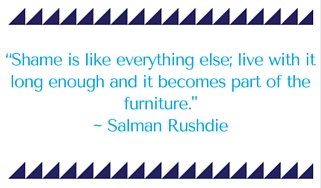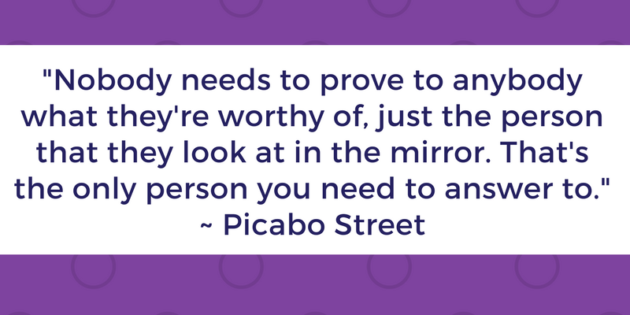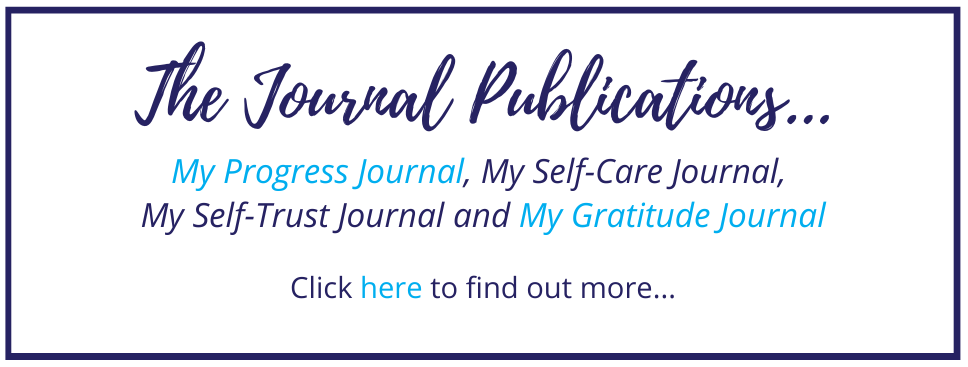Yesterday I caught up with some friends and before long the subject turned to worthiness (or lack of it). My eyes lit up as I am very passionate about supporting women reconnect with their own worthiness and realise they are enough.
Subsequently, I thought I would share more about worthiness and how you can start to transform deprivation and a lack of worthiness with shame resilience. In this post I am going to discuss –
- What is Deprivation?
- What is Worthiness?
- Lack of Worthiness…
- What is Shame?
- Transforming Deprivation and Lack of Worthiness
- What is Shame Resilience?
Let’s get started…
What is Deprivation?
There are many definitions of deprivation, including –
- “the damaging lack of material benefits considered to be basic necessities in a society” ~ Google and Oxford Dictionary
- “a situation in which you do not have things or conditions that are usually considered necessary for a pleasant life” ~ Cambridge Dictionaries Online
- “the state of not having something that people need: the state of being deprived of something” ~ Merriam-Webster.
Some examples of deprivation include – self-neglect, self-abuse, sense of hopelessness, lack of self-value, addictive behaviour or overindulgence (i.e. overspending on self and others).
What is Worthiness?
Ok it is probably quite self-explanatory, however here are a few definitions –
- “the quality of being good enough; suitability.” ~ Google
- “having adequate or great merit, character, or value:“ ~ Dictionary.com
- “the quality of deserving respect or attention“ ~ Cambridge Dictionary
- “the quality or state of having merit or value“ ~ The Free Dictionary
A Lack of Worthiness…
Some of the definitions of unworthy include –
- “beneath the dignity”, “not deserving” or “not commendable or credible” ~ Dictionary.com
- “lacking in excellence or value” or “not deserved” ~ Merriam-Webster
- “not deserving respect or attention.” ~ Google and Oxford Dictionary
- “not deserving respect, admiration, or support” ~ Cambridge Dictionary
- “If a person or thing is unworthy of something good, they do not deserve it.” ~ Collins Dictionary
If you have every questioned your worthiness, you will be familiar with the following sayings –
- Who am I to …
- Maybe when I …. then I can … or then I will be ready, valuable, deserving or worthy of …
- I am JUST a ….
- How could I possibly do …
A lack of worthiness looks like someone who is holding back, someone who is staying small, procrastinating, trying to be perfect, play it safe, or someone who is paralysed by doubt or fear.
A lack of worthiness feels like shame, anger, guilt, worry, fear, disappointment or that sense of disconnectedness.
What is Shame?
Before we start, it is important to note that shame is universal, no-one is exempt from it and we have all experienced it (even though it makes us think and feel we are the only ones).
Shame is about fear and is an emotion that many people struggle to understand it or put words to it. Some of the definitions of shame include –
- “a painful feeling of humiliation or distress caused by the consciousness of wrong or foolish behaviour.” ~ Google
- “the painful feeling arising from the consciousness of something dishonorable, improper, ridiculous, etc., done by oneself or another.” ~ Dictionary.com
- “A painful feeling of humiliation or distress caused by the consciousness of wrong or foolish behaviour.” ~ Oxford Dictionary
- “Shame is the intensely painful feeling or experience of believing we are flawed and therefore unworthy of acceptance and belonging. Women often experience shame when they are entangled in a web of layered, conflicting and competing social-community expectations. Shame creates feelings of fear, blame and disconnect.” ~ Brené Brown, I Thought It Was Just Me (but it isn’t): Making the Journey from “What Will People Think?” to “I Am Enough” (p.29).
Would you add anything in to the above definitions?

Transforming Deprivation and a Lack of Worthiness
Deprivation and a lack of worthiness can be transformed. One way to do this is by developing shame resilience.
Shame Resilience
In order to effectively deal with shame (which is an emotion that comes from low self-worth), Brené Brown talks about developing and practising shame resilience. Shame resilience involves moving towards empathy (courage, connection and compassion) when we are experiencing shame.
According to Dr Brown, the four (4) elements of Shame Resilience are –
- Recognising shame and understanding our triggers (e.g. physical responses like our heart racing or tightness in our chest),
- Practising critical awareness (i.e. knowing why something exists, how it works, how our society is impacted or impacting on that something and who benefits from it),
- Reaching out (i.e. by reaching out to our support network and sharing our story, we can increase our resilience and create change), and
- Speaking shame is so important as it’s survival depends on going undetected (i.e. through secrecy and silence). Subsequently, if we recognise and understand our triggers, practice critical awareness and reach out to others, we can grow our resilience as we practice communicating about our shame with our most-trusted advisors who use their own compassion and courage whilst listening and supporting us.
I hope this post has given you some insight in to deprivation and a lack of worthiness and how you can start to transform deprivation and lack of worthiness with sham resilience.
If you are ready to reclaim your courage and take the next step towards freedom and opening your heart, why not join our Toolkit?
References –
Brown, B. (2007). I Thought It Was Just Me (but it isn’t): Making the Journey from “What Will People Think?” to “I Am Enough”. New York, USA: Penguin.

















Leave A Response